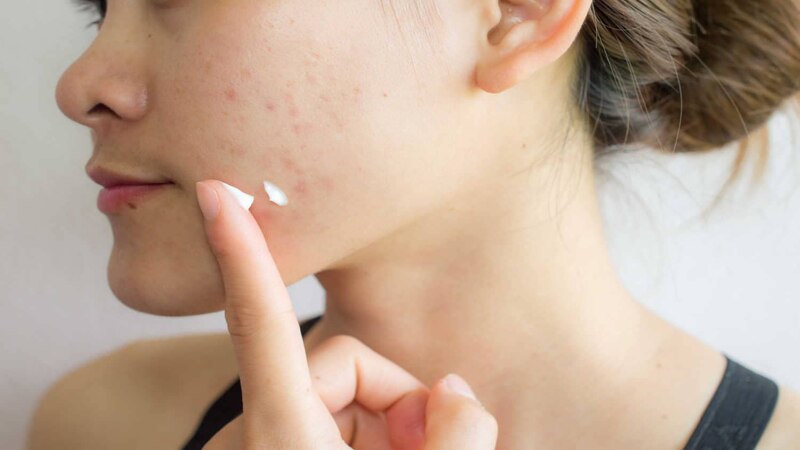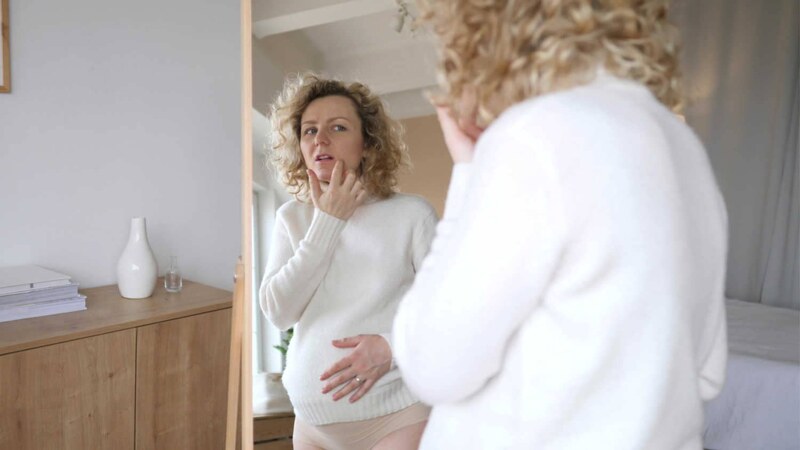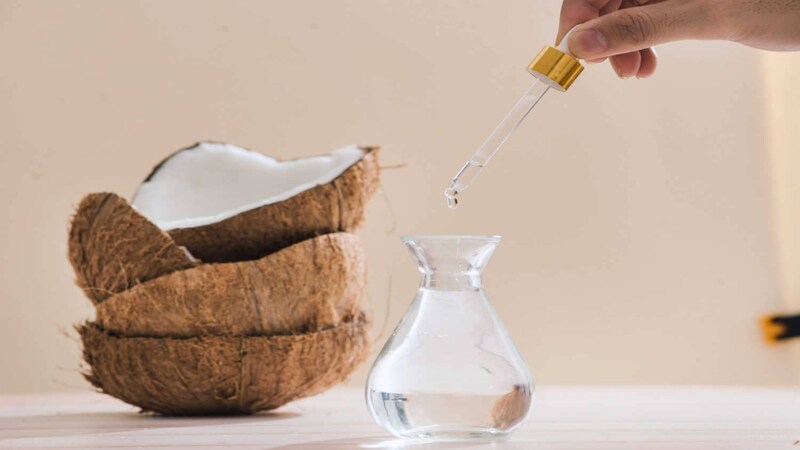
During pregnancy, elevated hormone levels can bring about a variety of skin changes. The most commonly experienced skin issues revolve around acne. With regard to a non-pregnant woman who receives a broad range of prescription drugs, the pregnant woman has simply a limited choice as she has to be more careful when it comes to selecting acne medications.
Acne most frequently appears during the first and second trimesters of pregnancy. This can happen even if you had clear skin during the pre-pregnancy time. Luckily, pregnancy acne is found to disappear after delivery as the hormone levels go down to normal gradually.
What Causes Acne During Pregnancy?
An increased level of a hormone called androgens results in boosting the activity of the sebaceous glands of the skin resulting in the production of more sebum, an oily and waxy substance. This oil along with the dead skin cells can block the pores, offering bacteria the space to dwell. This accumulation of bacteria results in inflammation and breakouts. Women who are susceptible to acne during their menstrual periods have an increased chance of experiencing pregnancy acne.
Is It Safe To Use Acne Medications During Pregnancy?
No. Majority of the acne medications are not safe and might harm the unborn child. Even though most pregnant women will be watchful when it comes to what they eat and drink, many of them may not probably be aware that, what they apply to their skin needs equal concern.
What Makes Acne Medications Unsafe During Pregnancy?

Let’s examine why most acne medicines are dangerous during pregnancy. Acne medication includes topical medicines, oral medicines, or a combination of both.
Most of the topical ingredients get absorbed by the skin and get into the bloodstream of the mother. Some of them are proven to have harmful effects on the unborn baby. Usage of several oral acne medicines and antibiotics (used to treat severe acne) is strictly prohibited while pregnant, as they cause several health issues, mainly for the unborn child. Some of them can even trigger miscarriage. Here are some of the components in acne medicines which are proven to be dangerous in the course of pregnancy.
Double-check the medicine’s cover and confirm that these ingredients are absent in the anti-acne (topical or oral) medication you take:
1. Retinoid
These are a type of vitamin A that accelerate the divisions of the cells. It is found very effective in treating moderate to severe acne. During pregnancy, you should keep away from anti-acne cream or gel which contains retinoids. Oral retinoids are found to cause birth defects in the babies
2. Tretinoin/ Isotretinoin/ Adapalene
If acne creams or oral medicines are found to have these elements, then these medicines should be averted. Products containing the above-mentioned ingredients can bring on serious health issues for the baby or even increase the chances of infant death
3. Tetracycline
This antibiotic is used to treat acne. Using tetracycline after four months of pregnancy has a toxic effect on the developing baby’s teeth and bone
4. Salicylic acids
This is a mild acid that is a chief component of certain anti-acne toners and cleansers and peels. Though no significant issues may occur if applied mildly once a day, most doctors will not encourage it in the course of pregnancy as it can cause various pregnancy complications and birth defects.
The peels which contain salicylic acid are not permitted to apply while pregnant as the skin absorbs more quantity of this chemical. Salicylic acid belongs to the aspirin family and a peel is as dangerous as taking one or more aspirin during pregnancy
5. Accutane
This oral acne medicine has harmful effects on the developing baby
6. Hormonal therapies
Anti-androgen therapy, which is used in the treatment of acne is definitely not approved in the course of pregnancy. Flutamide and Spironolactone are generally used for hormonal therapy. Make sure they are not present in your acne medicines.
7. ‘Leave-on’ topical medications
Be very cautious when selecting a leave-on gel, cream, peel, or mask for treating acne. As it stays longer in the skin the chances of absorbing the harmful ingredients increase.
How Can I Treat Pregnancy Acne Naturally?

The cream and lotion that is applied every day as part of skin care may pass the skin barrier and get assimilated into the body. With a developing baby in your womb, you should consider this before attempting to treat acne. Of course, you can’t also leave the acne untreated. There are safe and effective acne medications available.
It is possible to treat and control acne during pregnancy through a proper skincare routine based mainly on natural methods, like:
1. Cleanup
Cleaning the face with a gentle, soap-free face wash twice a day is very important
2. Never over-wash
Overwashing the face washes off the skin’s natural moisture. This results in increased oil production, thereby aggravating acne
3. Never use hot water to wash the face
Hot water dries out the skin, thereby the glands produce more oil. Instead, use cool or lukewarm water. After rinsing the face always pat dry
4. Never rub or squeeze the acne
Scratching and squeezing the acne increases the number of acne and causes scarring. Never even touch the face as it increases the chances of bacterial activity. Also, never scrub the face.
5. Use water-based make-up
Instead of oil-based make-up, always pick out water-based composition, that too, if you are really in need of “make-up” (if possible, it’s better not to use cosmetics while you are pregnant). Also, select the make-up products labeled ‘non-comedogenic or non-acne genic’ which means they will not block the skin pores thereby decreasing the chances of having acne.
Click here to know the cosmetics that you should avoid
6. Eat and drink well
A healthy diet with plenty of fruits and vegetables and drinking plenty of water (avoid carbonated beverages, processed food, and refined sugar) is a key to healthy skin
7. Wash the hair regularly
Oil can accumulate on the scalp and ooze down, which increases the chances of acne. The oily scalp also increases the chances of having dandruff which in turn aggravates the acne. Therefore, regular hair washing and maintaining a healthy scalp are important in the treatment of acne.
Instead of allopathy medicines, try natural ways, such as:
8. Using Apple Cider Vinegar As A Toner
Mix one portion of vinegar with three portions of water (never use it without diluting it as it is too strong and may cause burns). A toner that is rich in alpha hydroxy acids, which have anti-fungal, anti-bacterial, and anti-virus properties and the capability to keep the bacteria at bay.
9. Using Virgin Coconut Oil As A Moisturizer

Coconut oil is not like other oils. It can induce amazing changes in your skin because of its antibacterial and anti-fungal properties. Use it as a +moisturizer. You will definitely see the difference as it is one of the best acne medications. Make sure you use virgin coconut oil only
10. Oatmeal and cucumber
This paste is a wonderful pack that provides a cooling effect for the skin
11. Baking soda
Mix one spoon of baking soda with one spoon of water. Apply the mixture on the individual pimples (spot treatment). The baking soda dries the oil, thereby, promoting faster healing of acne
Products containing benzoyl peroxide are considered safe to use during pregnancy
12. Honey
Antiseptic and antibacterial properties of honey help in the treatment of acne. Apply honey directly to the affected area after rinsing the area thoroughly with warm water. Leave it for around 30 minutes. Again rinse with warm water and pat dry.
More on treating pregnancy acne naturally here.
FAQs
1. What Can I Use Instead Of Salicylic Acid During Pregnancy?
It is assumed that azelaic acid is safe to take during pregnancy. You may even get it without a prescription, and doctors say it’s safe to take in little doses. However, it is important to take the suggestions of your dermatologist before you go ahead with anything new during pregnancy.
2. When Does Pregnancy Acne Stop?
Pregnancy acne is a natural issue. It generally goes away when your hormone levels return to normal. Typically, pregnant acne will improve during the first trimester. But facial and body breakouts may start showing up in the third trimester, which normally happens when maternal androgen hormone levels start to surge.
3. What Hormone Causes Acne In Pregnancy?
High levels of progesterone is the main cause of acne during pregnancy. This hormone also stimulates your skin’s oil glands to generate more oil. When the oil clogs your pores, it can contribute to acne breakouts.
